Hello Pastor Frank. I’ve enjoyed reading your articles, especially about having a low libido and return to nature. A lot of members of my millennial generation are lonely and they’re not dating. I don’t feel lonely but I like to get away by myself. I also don’t know about my libido but I don’t have a great interest in having sex. I work in New York City and recently I looked for a small cabin in upstate New York in which to spend a week’s vacation. I found one near the Catskills that a farmer was renting out. It was used in years past as a bunk house for hired hands and the farmer has fixed it up for renters. I liked the solitude it offered and I worked out a deal with the farmer to rent it indefinitely to me as a tenant. It’s rustic. It has hand-pumped water from a well and a wood-burning stove as well as a small gas stove. It also has electricity, a hot water tank, a shower stall and a flush toilet. I hope to use it year round. I’ve been going to it alone on long weekends (often I don’t have to go into the office on Fridays). I’ve enjoyed the manual labor of fixing it up and then taking a naked dip in the nearby spring-fed private pond (if nobody is around). To me this is paradise. Internet connection is spotty, but I can go to the cafe in the nearest town and check emails while having lunch. I write to ask your advice about adding a spiritual dimension to my getaway in the woods. What would you recommend?
Dear hermit,
If you want to be alone as a solitary in solitude, your cabin does indeed seem like Eden. Or maybe like Thoreau’s Walden. Imagining what you described, I chose this image of an old cabin in the woods as a stand-in for your cabin.
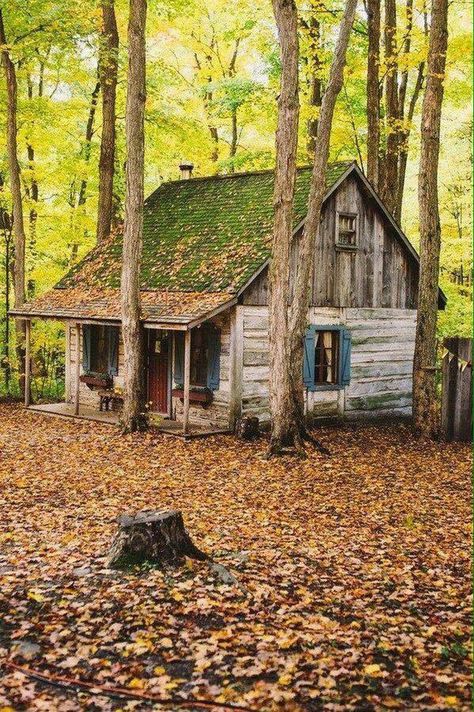
A recent survey indicates that about one-fifth of Americans over 18 report being always or sometimes lonely. This is especially the case with the younger and the older generations. But the perception may not match reality. Daily Science reports that “High school students reported fewer friends with whom to interact, but less desire for more friends.” There is a difference between being lonely and being alone. Some people are content to be alone, and most of us need to be alone on occasion. Even spouses!
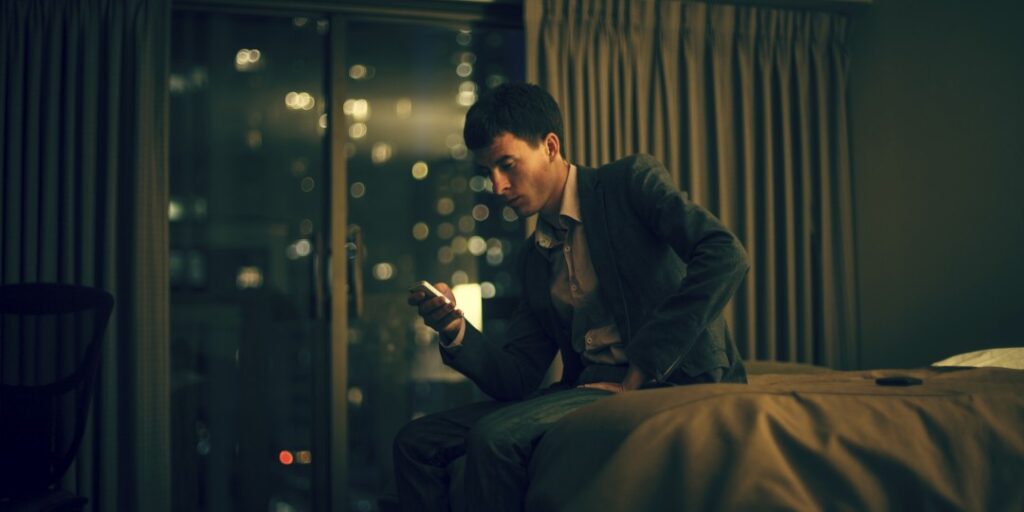
Loneliness is being treated like a disease today. But the theologian Paul Tillich wrote, in a sermon on “Loneliness and Solitude,” that it is the human predicament to be alone because we are each unique in body and soul. But in the fallen condition of our world we may experience loneliness. He writes that our language “has created the word ‘loneliness’ to express the pain of being alone. And it has created the word ‘solitude’ to express the glory of being alone.” He goes on to say that “Loneliness can be conquered only by those who can bear solitude.” [See Paul Tillich, “Loneliness and Solitude,” The Eternal Now (Charles Scriber’s Sons, 1963), 15–25.]
Solitude in the Spiritual Tradition
The Bible is full of stories of men called by God spending time in solitude with God. Moses was alone with God on Mt. Sinai for 40 days after the exodus of the people of Israel from Egypt. The prophet Elijah, who was in conflict with King Ahaz and his pagan Queen Jezebel, fled to Horeb (another name for Sinai) and replicated Moses’ 40 days alone on the holy mountain. Jesus spent 40 days fasting in the wilderness of Judea after his baptism in the Jordan River for spiritual strengthening before being tested by Satan. Jesus also went to solitary places to be alone in prayer during his ministry.
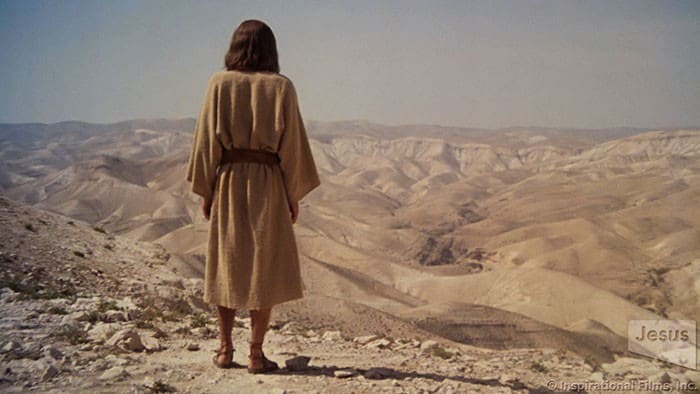
These examples provided models for hermits who wanted to get away from the world and the church in the world by living as solitaries in the deserts of Eygpt and Palestine in the early 4th century. The most famous was Anthony of Egypt at the beginning of the 4th century. His follower, Pachomius, brought hermits together to live in common and thereby founded the first monastery. The early monks were really hermits living together in a community devoted to common prayer and common work to meet their physical needs. These hermits were collectively known as “the desert fathers.” They dispensed spiritual wisdom to pilgrims who came to them looking for it. You might want to read their collected sayings in The Desert Fathers, translated with Introduction by Helen Waddell (An Arbor: University of Michigan Press, 1966).
These hermits and monks were renunciates. They disavowed sexual relationships and lived lives of celibacy. But, like Jesus, they experienced temptations that they told others about. The story of St. Anthony of Egypt was the one most written about, including his temptations and visitation by demons and sexual fantasies. Here is one painting of “The Temptations of St. Anthony,” ca. 1577, by Jacopo Robusti Tintorello (ca. 1518–1594), looking for help from heaven during his temptations.
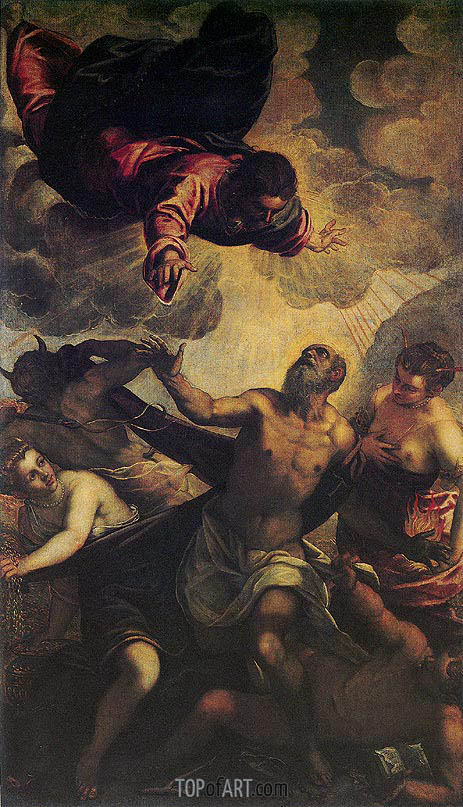
You said you weren’t interested in sex. But we are sexual beings and the stories of the Desert Fathers remind us that even the most committed celibates experienced sexual fantasies. I doubt that you will avoid having such fantasies and a need for sexual release. You will have to decide how you deal with that.
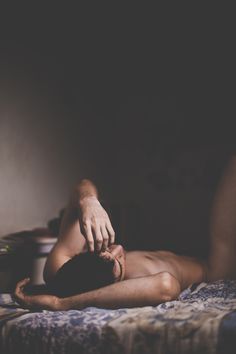
You also show an interest in nakedness in your question. I imagine that when you arrive at your cabin it may be warm in the summer from being locked up while you aren’t there. You desire to undress. But I think nakedness is also appropriate for spiritual hermits. Even monks engaged in scholarly work, like St. Jerome (translator of the Hebrew and Greek Scriptures into common Latin known as the Vulgate), went out from his cell in Bethlehem to be solitary and literally naked before God in the Judean wilderness. Here is a painting of St. Jerome by the Dutch Renaissance artist Anton Van Dyke. Being naked before God signifies being vulnerable to God’s scrutiny but also open to God’s guidance.
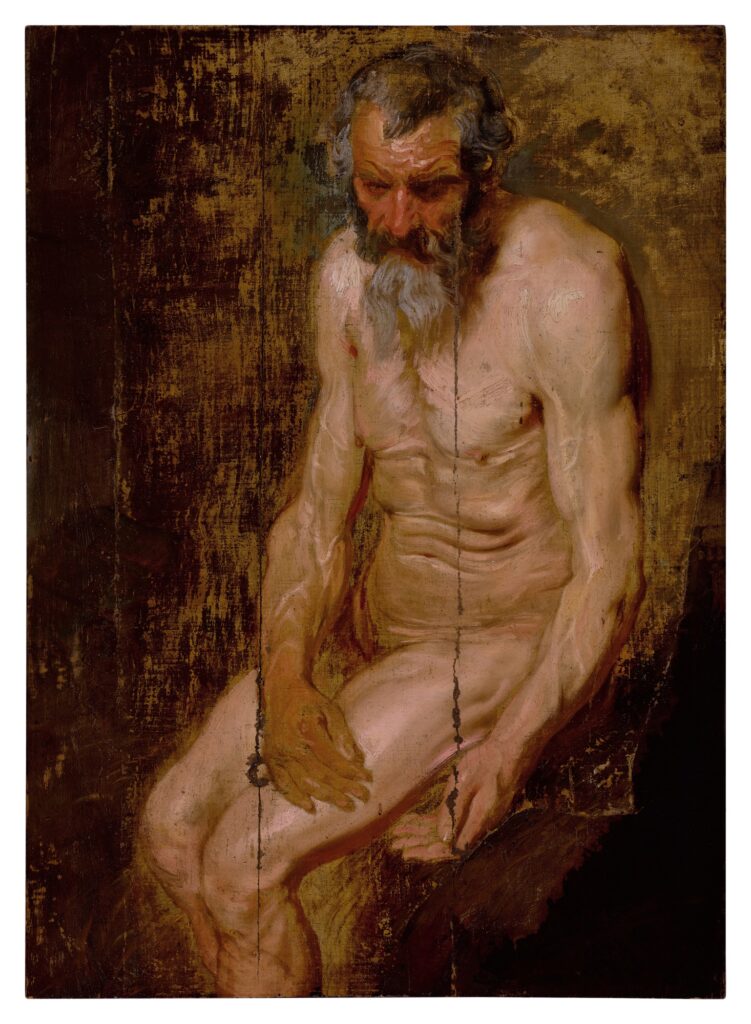
Interestingly, the yogis in India often left their town jobs and families to become hermits in the forests and mountains of northern India. They too gathered into communities for common meditation and common work known as ashrams. But sometimes they lived in caves away from the community. Since they disgarded all the trappings of worldly life, they lived naked. The tradition of the naked holy men (naga sadhus) continues today in modern India..
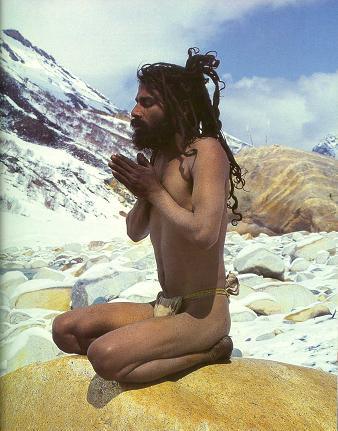
As for developing your own spirituality as a solitary, I would note that the Benedictine Rule provided for monks living in a highly regulated community to go off, under the abbot’s direction, into a hermitage to spend time in solitude. But alone or together, the Benedictine life was divided into times of prayer and work (ora et labora) as well as set times for meals and study and sleep (all indicated by the ringing of the monastery bell). Even as a solitary the spiritual life must be a regulated life (from “regula,” rule). You might be interested in a recent popular book by Rod Dreher, The Benedictine Option: A Strategy for Christians in a Post-Christian Nation. His proposal is that the Benedictine view of life and its practices can be integrated into ordinary Christian life.
Prayer and Meditation
For prayer you might acquire a standard breviary (a book of daily prayer offices) to use at different times of the day. Morning and Evening are pivotal times of prayer at pivotal times of day. But prayers at Noon and at bedtime (Compline) might be added to your prayer discipline. (See Frank Answers About Daily Prayer Offices.) Praying the full prayer offices is something you would have to grow into. But the berviaries or prayer books would offer psalms and prayers for the different times of the day. You could begin with these.
Here’s how I imagine your day. Awake at sunrise for morning prayer. Prayer in your hermitage might be done in a state of actual nakedness before God since this is your private place. This may be new to you, but being literally naked before God can be a powerful spiritual experience. I would suggest beginning with a psalm. Traditional morning psalms include 95, 63, 103, and a selection from 145–150 (the praise psalms). Add a Bible reading. Pray the Song of Zechariah (Luke 1:68–79). Conclude with a morning prayer and the Lord’s Prayer. You may sit, stand, or kneel as you think is appropriate.
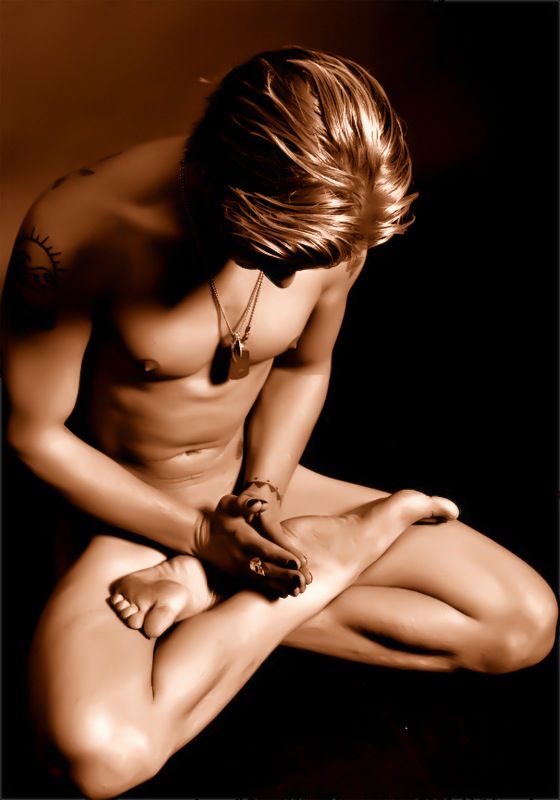
If you want to spend time in meditation, perhaps after Morning Prayer and breakfast, you might search out a site outdoors in which to sit surrounded by the natural world. You might sit in that spot in the different seasons (weather permitting) to observe the natural changes that occur in that one site over the course of the year and let that observation lead to reflecting on changes in your own life. You might also begin to identify more with the natural world and its cycles of life. Nature was the primary sanctuary of St. Francis of Assisi. He also referred to the body (“Brother Body”) as the cell or hermitage for the soul of the hermit who prays within it. Put yourself body and soul into the natural setting you frequent.
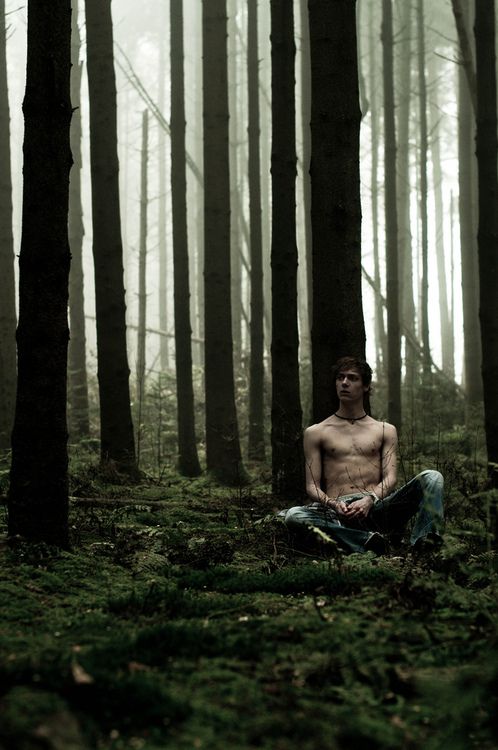
Work and Play
Benedictines had the motto ora et labora (“pray and work”). But philosophers of culture note a similarity between work and play if both are done because they are enjoyable. Work on the farm may be more enjoyable to you than your office job.
You mention doing work on your cabin and perhaps in the area around your cabin. If you have a wood burning stove, or a campfire pit, you will need to chop some wood for fires. In fact, if you intend to be using your cabin year round, you should anticipate a need for logs from late fall through early spring – and a dry place to store your fire wood. As a renter you should consult with your landlord about what logs to cut. But thinning out the woods on the property is, ecologically, a good thing to do. It’s also good aerobic exercise.
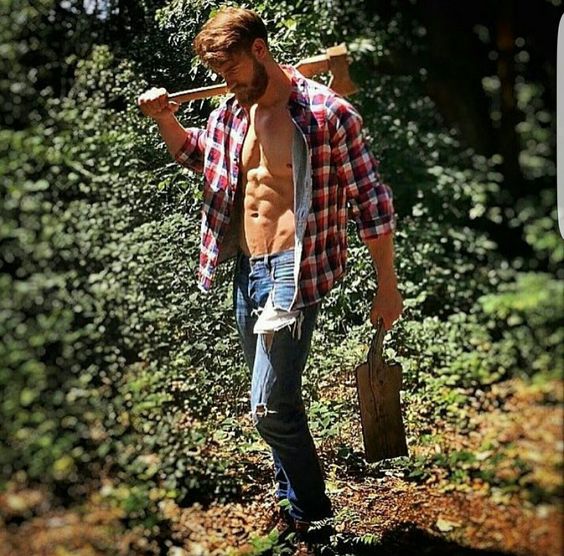
After working on some physical project you can relax in that pond on the property you mentioned (naked, as you say). Bathing is calming and purifying.
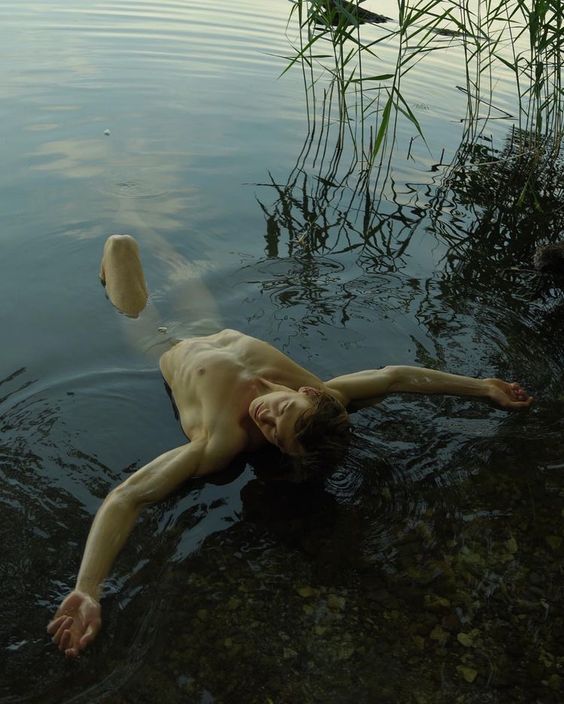
If you’re interested in swimming naked, there are many waterfalls and swimming holes in the Catskills and Hudson Valley in which to do that. There are some designated nude swimming holes in the Hudson Valley as well as some less well known swimming holes in the Catskills in which, on a weekday as a solitary swimmer, you could risk swimming naked. Naked or not, any of them would be fun to go in, although the most popular ones would be crowded on a summer day.
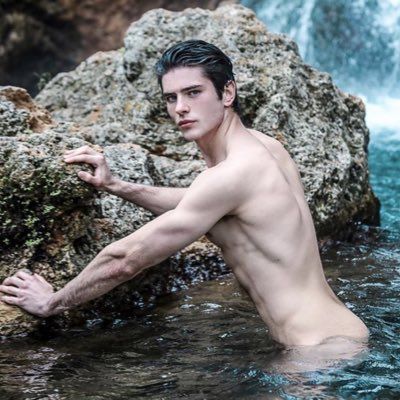
In upstate New York (Hudson Valley, Catskills?) there are plenty of natural areas and state parks in which to hike, although probably not naked except on the portion of the AppalachianTrail that crosses southern New York. (As I wrote in Frank Answers About Being Naked in Nature, it is not illegal to hike naked on Federal land such as national parks, forests, and trails). Within the Catskills some of these trails involve climbing, such as up to the Giant Ledge for its view.
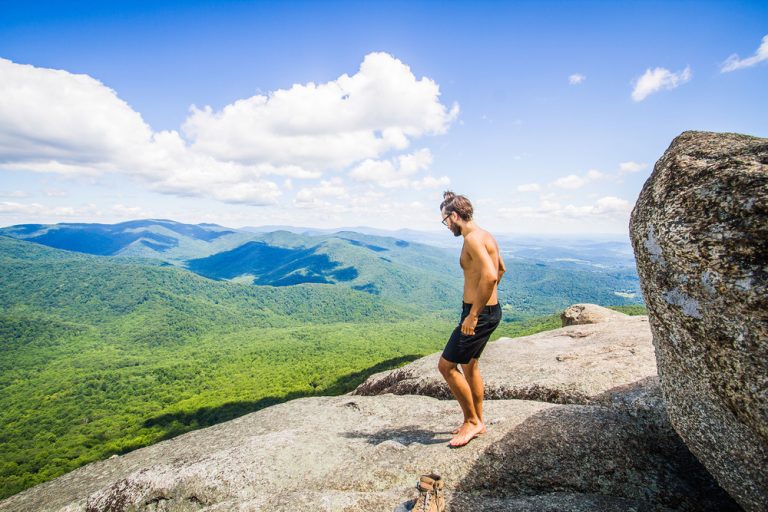
Seasons of the Year (this section Added 09/12.2023)
As you take possession of your hermitage it is summer. But since you mention using your cabin as a year-round retreat house, let me imagine with you other seasons of the year. I know about upstate New York’s season because I grew up there. I spent four years at Hartwick College in Oneonta just west of the Catskills. Fall is a beautiful time in the region because of the Autumn foliage. Here’s a fall scene with an old farm buildings.
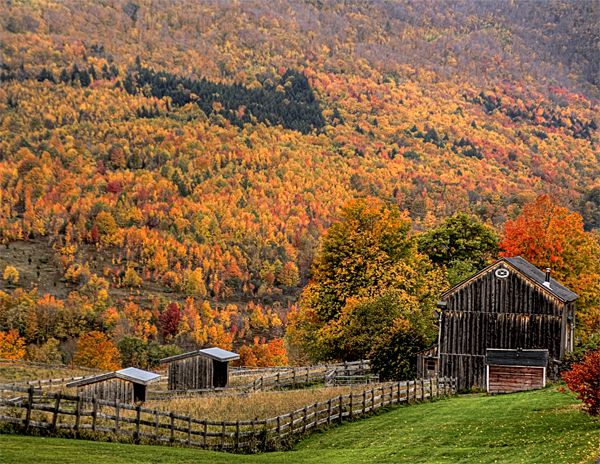
The daytimes will still be warm in the so-called “Indian summer,” although the nights will get cooler. The Autumnal Equinox is September 24 and the light and darkness will be about equal. The foliage colors in the Catskills are gorgeous in mid-October and invite hiking on nature trails. I think it’s the best time of the year to be out in nature. Nature is at its best, but it is a last hurrah. Bittersweet—like life itself.
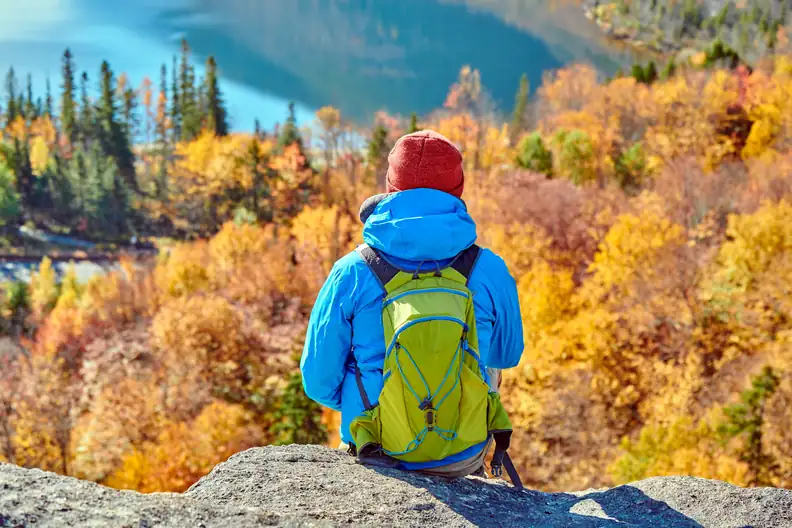
Later in the year as snow comes to upstate New York, you’ll need to bundle up. Here’s a winter scene with a rustic cabin. For outings, there are many ski resorts in the Catskills. Or you might want to try cross-country skiing on your farm.
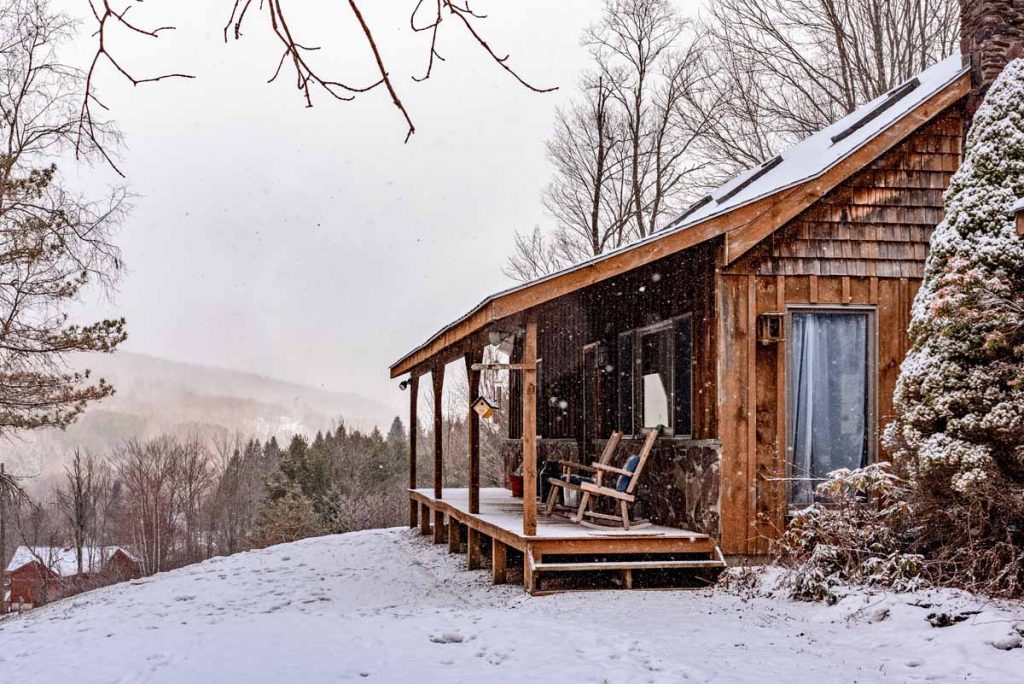
Winter nights should offer plenty of time to get done some serious reading.
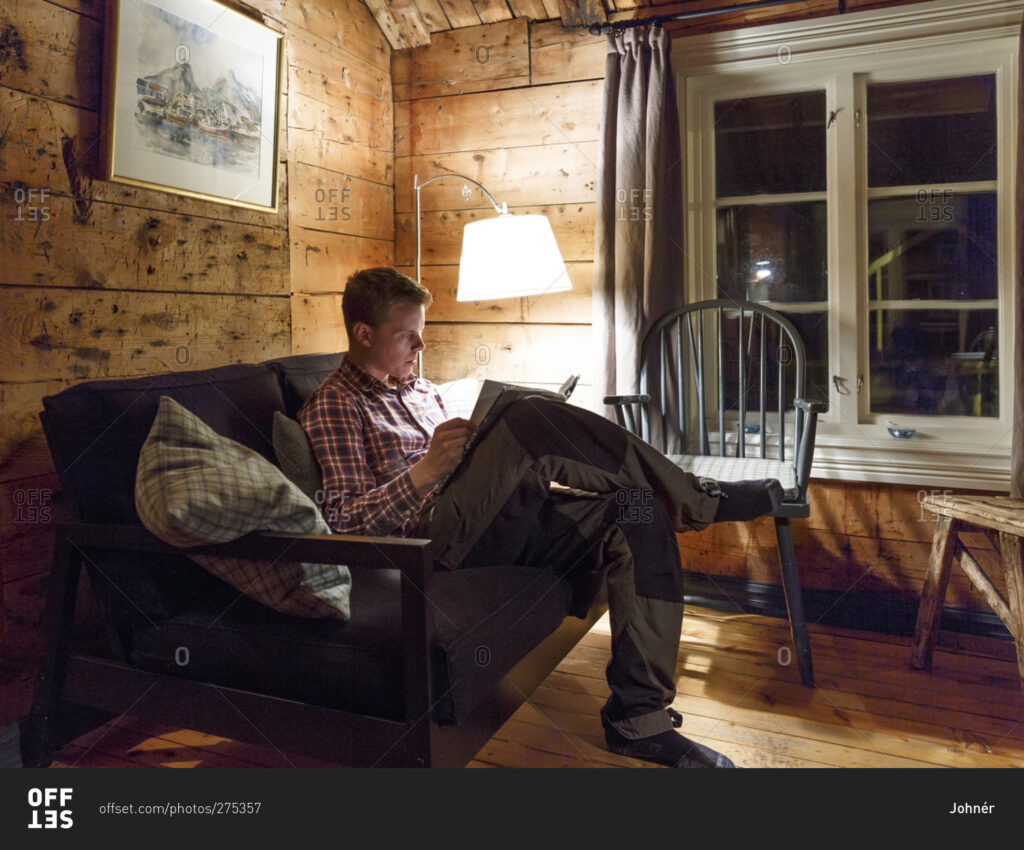
I’m thinking of the source of heat for your rustic cabin. You mention a wood burning stove. We had a stove with a fire box when I was growing up in Buffalo and it gave us a warm kitchen on winter mornings. My grandfather built a bedroom for me and my brother in the attic, but there was no source of heat. We used an electric heater. With a wood-burning stove and an electrical heater your cabin should warm up pretty quickly. A comforter or fleece blanket should keep you more than warm at night. You might find it sensuous to sleep naked under or on a comforter or wrapped up in a fleece blanket. I sometimes did as a teen ager.

Spring comes to the Catskill region with the roar of waterfalls from the melting winter snows. You could hike to vsiit these waterfalls. But be cautious on slippery rocks.
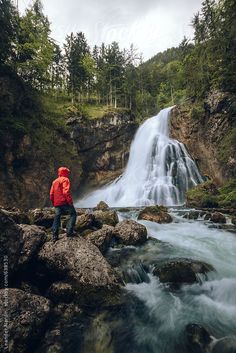
There will also be a need to clean up winter debris around your cabin. The image of the cabin at the top of this article is an early spring scene. You can see the ruts in the road caused by farm vehicles driving over soft ground from the meted snow. The guy below is filling in the ruts with gravel. Improving access to your cabin, whether by road or trail (from the pond?), might be a spring project.
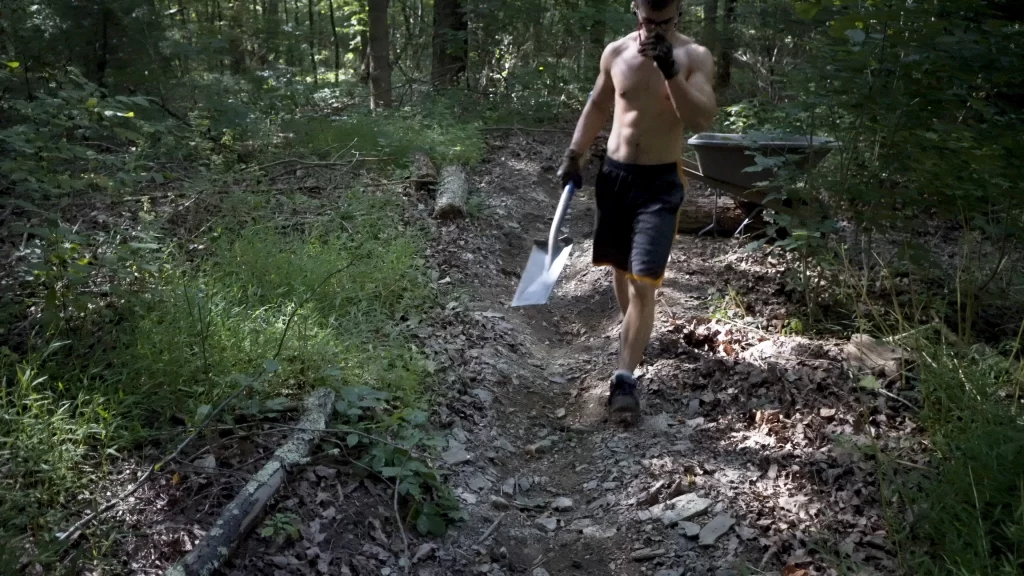
In the Evening of the Day
In any season, a day well spent outdoors deserves a hearty meal back at your cabin. It can be a spiritual undertaking to prepare food. Over time you can stock your shelves with non-perishable food items and bring perishable food with you. Bookstores have titles on food and spirituality.

You might pray Vespers before you eat. Light a candle, pray Psalm 141, and burn some incense. Then pray the Song of Mary (Luke 1:46–55) and offer a thanksgiving for the blessings of the day.
The evening might be a time to read or just sit out under the stars gazing at the universe.
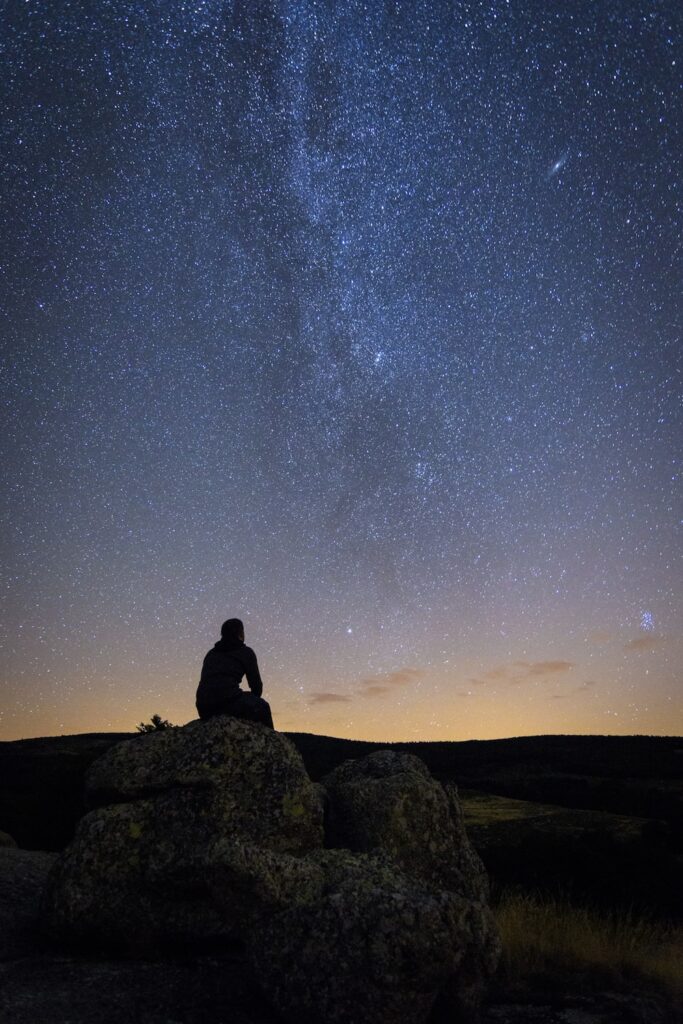
Conclude the day with night time prayer. Suggested psalms would be 4, 32, 33, 34, 91, 134, or 136. Pray the Song of Simeon (Luke 2:29–32). Conclude with a prayer of supplication (or a Compline prayer from the prayer book).
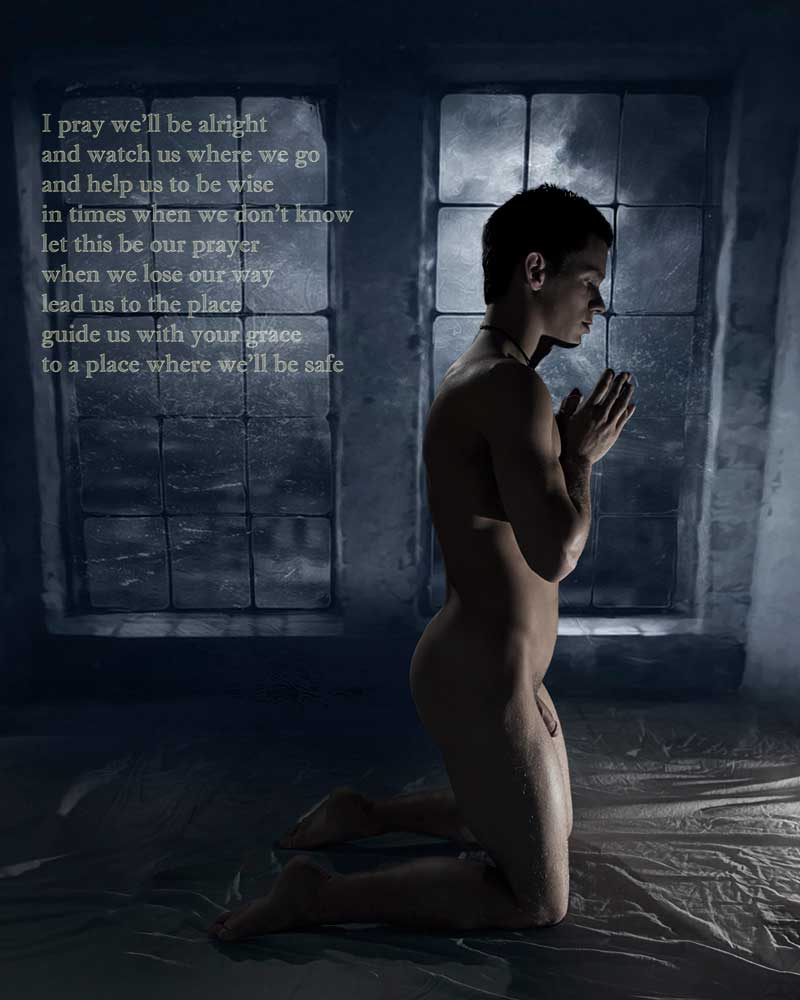
…and then have a restful sleep.

“I lie down in peace; at once I fall asleep;/ for only you, Lord, make me dwell in safety” — Psalm 4:8. Prayed in Compline.
I wish you well as your explore spiritually the solitary life. I’m excited for your possibilities. I think it will be a wonderful experience for you that you might later write about. What you learn in your hermitage you may be able to transfer back into your regular life as a young millennial in the city. I wish you well.
Pastor Frank

P. S. I had a friend who rented a tiny cabin in the woods of Wisconsin for a week. These cabins have become popular as getaway places, especially during the COVID-19 pandemic. They are an option for those who are looking for a solitary experience.
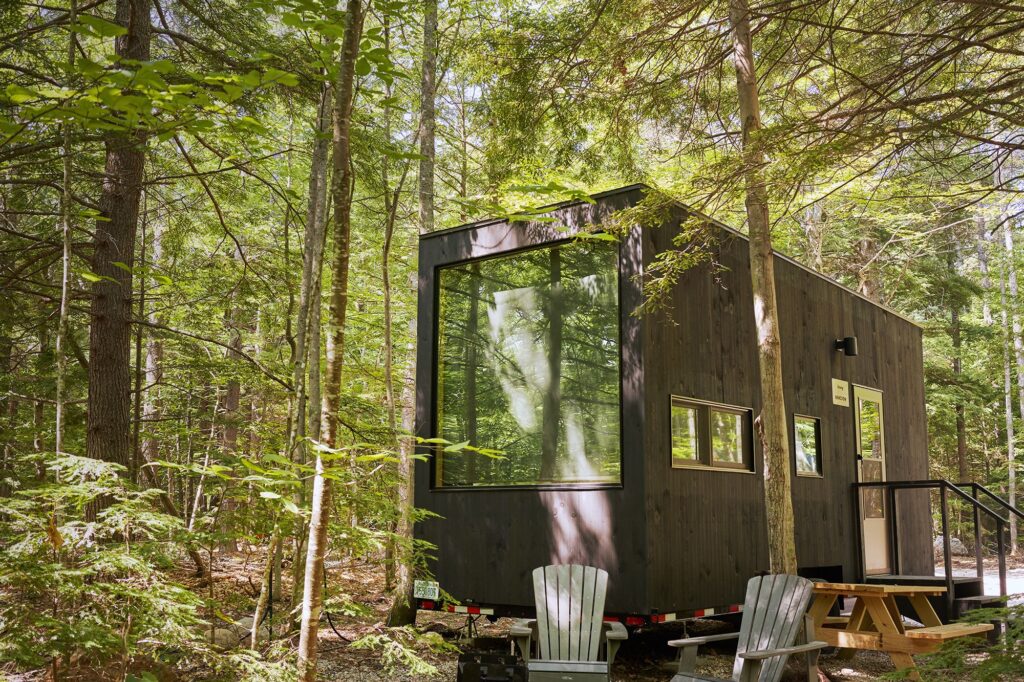
This guy looks a lot like my yoga buddy.
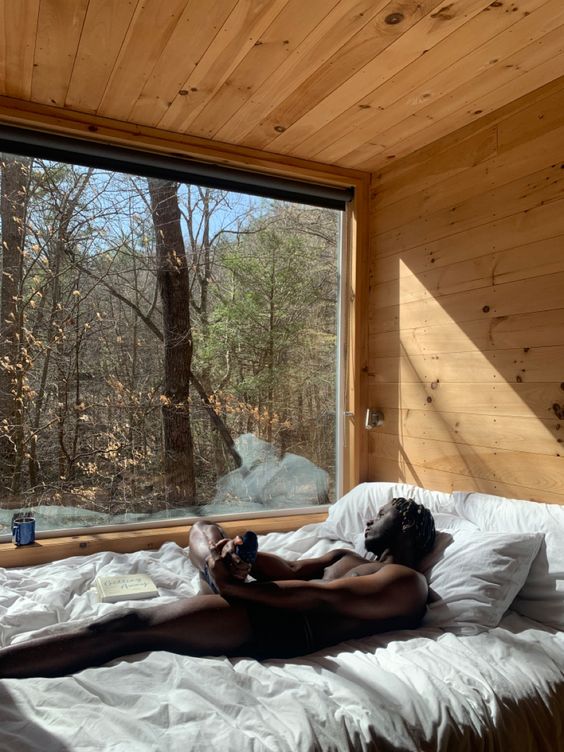



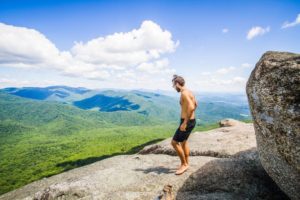
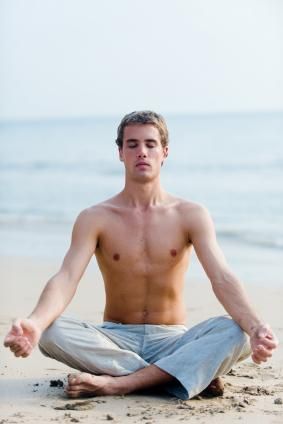

(from email)
Dear Pastor Frank,
Thanks for the additional information about the other seasons in the Catskill region and what to expect. I also notice that some images have been changed. The new guy at the top of the article looks closer to thirty than to twenty. That’s me. I don’t go up to my “hermitage” every weekend, only when I have a three-day weekend. I appreciate your information about the daily prayer offices and I have purchased the Benedictine Daily Prayer: A Short Breviary. I started using it at home to see how it works so I can have some continuity between house and getaway cabin. Praying naked is a new experience for me. But since I usually sleep naked, it just means remaining naked for morning prayer and being naked for Compline before I go to bed. I confess it’s a lot easier to maintain this practice at the cabin than at home where I might have a more irregular day. I think it’s cool that you have been so interested in my project and maybe after a year I could give you a report on how I’m doing. I appreciate your advice.
The millennial hermit.